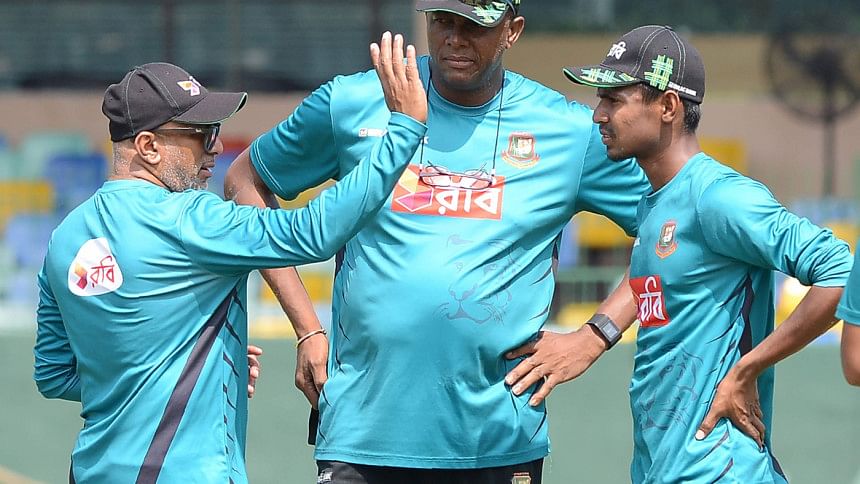'Body language the biggest change'

On Bangladesh's current tour of Sri Lanka, it is hard to get too far from the tour-opening Galle Test. Till date it was the only truly bad game that Bangladesh played, culminating in a collapse of five wickets in the first hour of the fifth morning on a surprisingly non-threatening fifth day pitch. But far from morning telling the day, it was the jolt that 259-run loss gave to the team and the corrective measures that it set in motion that has had a telling effect on the rest of the tour, with Sri Lanka winless in the following three international matches.
Much of the change was caused by a team meeting between the players after the Test where they spoke openly about what they wanted to do and where they had gone wrong. According to Test vice-captain Tamim Iqbal's words after the second Test at the P Sara Oval in Colombo, the country's 100th, which ended in a first-ever win over Sri Lanka, the Galle Test also set off a tradition of the players holding a closed-door meeting before each international match, presumably to take ownership of the game plan that they are the ones who will have to execute. So far, it has resulted in a sense of purpose in every player on the field, and coach Chandika Hathurusingha saw that reflected in the body language of the players.
"The body language and effort on the field is the biggest change I have seen in the last few matches, after the Galle Test," said Hathurusingha during the team's optional practice session yesterday morning at the Sinhalese Sports Club, the venue of the third and final ODI on April 1 in a series Bangladesh lead 1-0 after the washout in the second ODI in Dambulla. "They had a good one-to-one afterwards, and the boys responded to that very well. In the last game we were a bit lethargic after the first 10 overs, but after that we were really good in the heat."
Bangladesh did concede 311 in the second ODI before rain caused the game to be abandoned, but in that performance too there was a stark difference between how they pulled back the scoring rate and what Sri Lanka did in the previous ODI when conceding 324 for five and losing the match by 90 runs. That pitch was not as good for batting as the one on which Sri Lanka were all out for 311, but in similar heat the Sri Lankan fielding wilted while Bangladesh's fielding held its own as they restricted Sri Lanka to 76 runs in the last 10 overs while taking six wickets, three of them to an innings-ending hattrick by fast bowler Taskin Ahmed.
It is a measure of the coach's, and perhaps the team's, expectations that when asked about the hattrick, Hathurusingha half-jokingly said: "A hattrick is always good, but it came too late for me."
There were diving stops near the boundary and the two direct hits from behind the stumps by Mushfiqur Rahim -- a person whose keeping skills are often maligned -- to run-out the dangerous Thisara Perera and Dilruwan Perera were big contributors to that late run-check. More intangibly, it was the constant encouragement after the end of each over, regardless of how it went, that may have caught the coach's eye.
That has been the theme since the first Test. Bangladesh have outperformed their higher-ranked opponents so far in all three departments and now, whether or not it was a fortuitous washout for Bangladesh, the home side face the prospect of playing out an ODI series at home without getting on the scoreboard for only the third time since 1986.
"We are very much confident if we get our processes right. I think we will do well against Sri Lanka," said Hathurusingha. "They are a very strong team at home. I can't remember a time when they didn't win a single game in a series, so it is a good position we are in. We are 1-0 up, we can't lose the series. They have to play well, and we have to play our best game to come good."
Like most of his players, Hathurusingha did not seem to believe that chasing 311 was out of reach for Bangladesh. "It was a good score, but chasing 300-plus was not easy. The wicket was better than previous match. We were really confident that we could have got it."
"When you win, everything looks good," he had said at the start of the session. Regardless where one lands on the debate surrounding the second ODI, it is hard to deny that at the moment, things are looking good for Bangladesh.

 For all latest news, follow The Daily Star's Google News channel.
For all latest news, follow The Daily Star's Google News channel. 



Comments